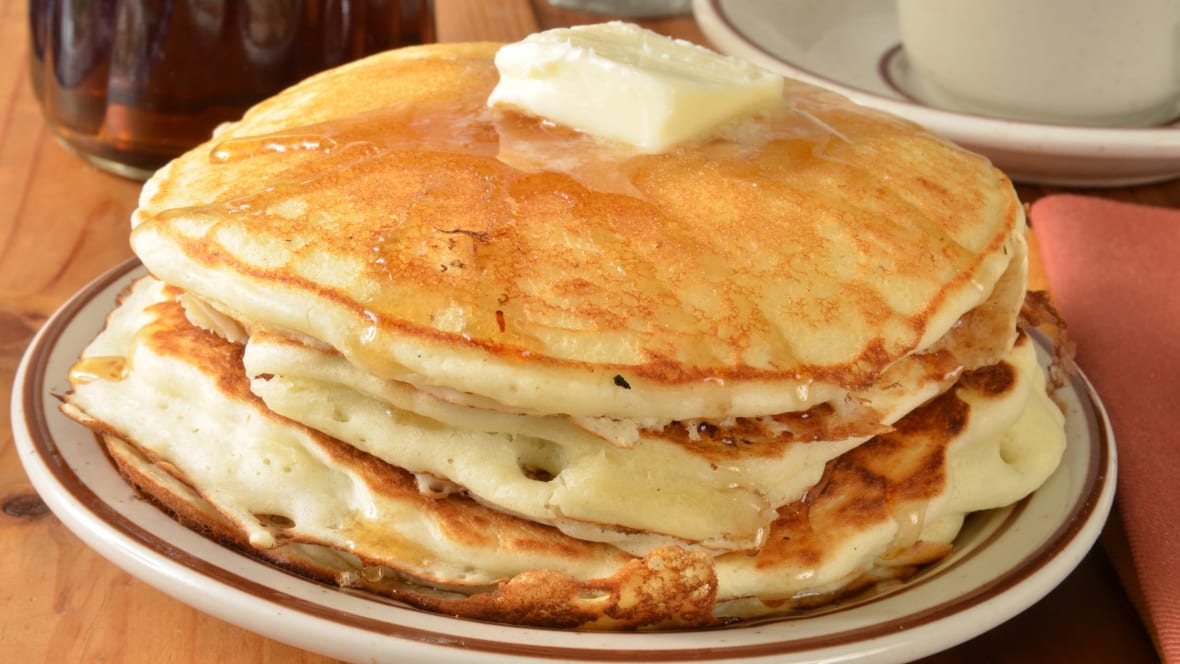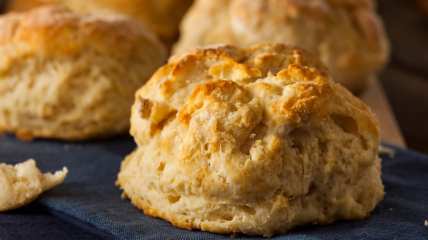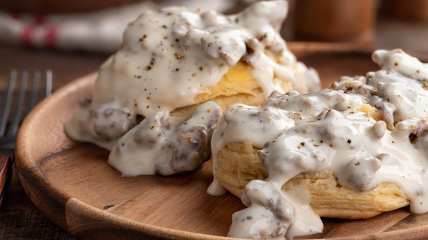History on a plate: The complicated history behind the beloved pancake
Love pancakes? Their history spans continents, eras, and even Aunt Jemima, but the best pancakes have always been homemade.
I love pancakes.
Eggs and omelets (those are eggs, people) remain America’s favorite breakfast foods, but pancakes are a close third, according to one survey.
Forget that survey. Homemade pancakes are number one for me.

As much as I love pancakes, I detest the racist history associated with America’s No. 1 pancake brand. While food can bring us together, it can also highlight painful cultural divides that society ignored for too long. In this case, the stereotypes weren’t fully addressed until 2020. That’s amazing — and not in a good way.
Each year, we celebrate Black History Month, which recognizes the accomplishments and contributions of Black people. Through food, we can take these lessons one step further. All the foods Black people love — from mac and cheese to potato salad to sweet potatoes — have roots in other cultures. Exploring those commonalities — and stereotypes — can help us learn a little more about each other.
Pancakes go back to at least 500 B.C., when the Greek poet Cratinus mentioned the Greek pancake “tiganites” in one of his works, of which The Encyclopedia Britannica says only fragments remain.
In another book, On the Properties of Food Stuffs, the Greek physician Galean wrote of “girdle-cakes,” and “griddle-cakes” made of wheaten flour soaked in water in the publication, written around the second century C.E. Scholars translated the book from the original Greek, and you can find the early mention under the “pastries” section.
In America, the “johnnycake” may have been the first pancake. Native Americans used cornmeal to make these flat cakes, according to the Native Heritage Project. Johnnycakes took on several different names, including flapjacks, griddle cakes, and hotcakes.
The Betty Crocker brand, in its Unofficial Happy History of Pancakes, said cooks once used brandy and wine to make their pancake batter, and the use of milk didn’t begin until the 1800s. By about 1870, Americans stopped using the term flapjack and replaced it with pancake.
Then, in 1888, a new pancake mix would take America by storm and usher in a shameful era.
Two men founded the Pearl Milling Company that year and began selling self-rising pancake mix, according to the company history in the Encyclopedia Britannica. Needing a logo for their product, the men opted to use the likeness of a large, smiling Black woman and called her “Aunt Jemima.” The name came from an 1875 minstrel song called “Old Aunt Jemima,” and the likeness from the racist and stereotypical “mammy” images of a heavyset Black woman anxious and happy to serve white people.
In 1925, Quaker Oats purchased the Aunt Jemima brand. Eventually, the company even hired a formerly enslaved woman to represent the real-life Aunt Jemima. According to Britannica, a public relations firm added a backstory, claiming Aunt Jemima protected a Louisiana enslaver from Union soldiers.
Over the years, Black women played Aunt Jemima at fairs across the country. And through the civil rights movement, Martin Luther King Jr’s death, Rodney King’s beating, Michael Brown’s shooting death in Ferguson, Mo. and countless other injustices, Aunt Jemima smiled at customers from that pancake box.
The year 2020 proved to be a turning point. Following George Floyd’s murder at the hands of Minneapolis police, the summer of unrest and racial reckoning that followed shined a brighter spotlight on institutional racism and the racist tropes that support it.
Quaker Oats announced it would remove the name and likeness of Aunt Jemima from its products and rebrand the product with the original Pearl Milling Company name.
“As we work to make progress toward racial equality through several initiatives, we also must take a hard look at our portfolio of brands and ensure they reflect our values and meet our consumers’ expectations,” Quaker Foods said in a press release. “We recognize Aunt Jemima’s origins are based on a racial stereotype. While work has been done over the years to update the brand in a manner intended to be appropriate and respectful, we realize those changes are not enough.”
Understanding the history, I remain grateful I’ve always made my own pancake batter.
Easy pancake batter
Dry ingredients
1 cup of flour
1 tablespoon sugar
1 tablespoon baking powder
1 teaspoon salt
Wet ingredients
1 cup buttermilk (Whole milk is OK)
1 tablespoon melted butter
1 beaten egg
1 teaspoon vanilla (I like the vanilla flavor, so I add two)
Directions: In a medium-sized bowl, add all the dry ingredients and stir. In another bowl, add the wet ingredients in the following order — buttermilk, butter, egg, vanilla — and stir (The buttermilk will cool the butter so the egg won’t scramble).
Pour the wet ingredients into the dry and mix thoroughly, until there are no lumps in the batter.
Drop the batter in a pan or griddle about three tablespoons at a time, more if you want larger pancakes. Cook over medium heat until bubbles start to form on top of the pancake. Flip and cook for another minute. Transfer pancakes to a plate. Serve with your favorite topping.

Ray Marcano is a veteran journalist who loves to cook and write about food. He’s the former national president of the Society of Professional Journalists, a two-time Pulitzer juror, and a Fulbright Fellow.
TheGrio is FREE on your TV via Apple TV, Amazon Fire, Roku, and Android TV. TheGrio’s Black Podcast Network is free too. Download theGrio mobile apps today! Listen to ‘Writing Black‘ with Maiysha Kai.


